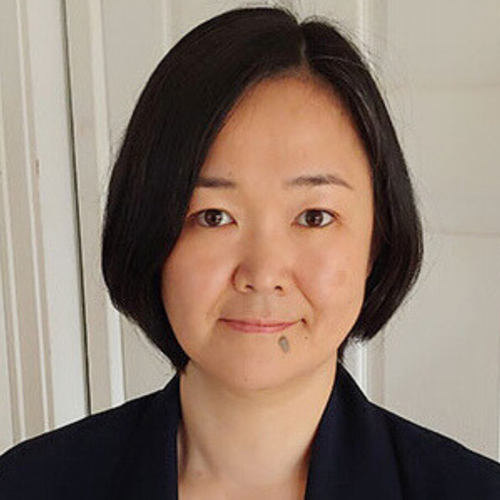News and Updates
Contact
Faculty of Social Science
Social Science Centre
Room 9438
Western University
T. 519-661-2053
F. 519-661-3868
E. social-science@uwo.ca
Highlighting the Immigrant Integration Course: An Interview with Professor Yoko Yoshida
August 24, 2024 In the dynamic landscape of immigration studies, Professor Yoko Yoshida's Immigrant Integration course stands out for its innovative approach to bridging academic theory with real-world application. We had the opportunity to speak with Professor Yoshida to learn more about what inspired the course, the practical benefits it offers students, and its impact on their future careers.
In the dynamic landscape of immigration studies, Professor Yoko Yoshida's Immigrant Integration course stands out for its innovative approach to bridging academic theory with real-world application. We had the opportunity to speak with Professor Yoshida to learn more about what inspired the course, the practical benefits it offers students, and its impact on their future careers.
What inspired you to develop and teach the Immigrant Integration course?
Professor Yoshida's motivation for creating the Immigrant Integration course arose from her extensive experience attending conferences where researchers, policymakers, and practitioners discuss immigration issues. She observed a growing need for data-driven insights among policymakers and settlement service providers, many of whom lacked the resources to generate relevant data for their funding applications or program evaluations.
Seeing an opportunity to address this gap, Professor Yoshida envisioned an applied research course that would enable students to tackle real-world challenges. By inviting experts from various government sectors and settlement services as guest speakers, she designed a course where students could develop research projects aimed at solving these practical problems. The culmination of the course involves students presenting their research findings to the guest speakers, providing actionable solutions to the issues discussed.
Can you describe the key practical lessons and skills that students gain from this course?
Students in the Immigrant Integration course gain a thorough understanding of key concepts from academic and policy literature and learn how to apply these concepts in real-life settings. They become proficient in research methodologies, learning to search for relevant data, conduct literature reviews, and apply research techniques to support program development or evaluation.
The course also emphasizes data analysis and presentation skills. Students develop the ability to analyze data, interpret findings, and present their results in clear and concise formats tailored for various stakeholders. Effective communication is a crucial component, as students learn to translate complex scientific terminology into engaging and accessible presentations.
Moreover, students gain practical experience in applying theoretical knowledge to real-world contexts, whether for program development, policy recommendations, or other practical implementations. Collaboration and teamwork are integral to the course, as students work together on projects, enhancing their ability to collaborate effectively and leverage diverse perspectives. The course also fosters critical thinking and problem-solving skills, challenging students to analyze complex issues, evaluate evidence, and propose innovative solutions.
How do you ensure the course content remains relevant and engaging for students?
To keep the course content relevant and engaging, Professor Yoshida places a strong emphasis on the involvement of guest speakers. By inviting experts from various fields, she ensures that students are exposed to real-world perspectives and current trends. Guest speakers provide practical insights, share their experiences, and discuss how academic concepts are applied in their professional contexts. This approach not only makes the content more relevant but also inspires students by connecting theoretical knowledge to practical outcomes.
Are there any specific projects or assignments that stand out in the course?
While it is challenging to highlight specific projects due to the unique skill sets and interests of students each year, Professor Yoshida notes that the course features a range of individual and group projects. The research projects are developed progressively throughout the course, allowing students to tailor their work to their interests and career goals. This flexibility ensures that each student's project is distinct and valuable.
What feedback have you received from students about the course?
Feedback from students is generally very positive, despite the course's intensive demands. Students appreciate the opportunity to engage deeply with concepts, theories, and data, and to apply this knowledge in practical settings. Many students highlight the course's impact on their understanding of immigration issues and their ability to communicate complex information effectively.
How does this course prepare students for their future careers or academic pursuits?
The Immigrant Integration course has proven to be a valuable stepping stone for students pursuing various career paths. For example, one student secured an internship with the Anti-Racism and Anti-Oppression Division of the City of London and later returned to the course as a guest speaker. Another student, who worked on a project involving administrative records, went on to graduate school to study data governance. Additionally, a former student pursuing law school expressed interest in immigration law in her letter of intent.
Can you share any memorable success stories from students who have taken this course?
Professor Yoshida fondly remembers a former student she encountered at a community event on immigration settlement. This student, now an event organizer, had gained recognition for her knowledge and analytical skills. Her supervisor praised her contributions, and the student agreed to return to the course as a guest speaker, demonstrating the lasting impact of the course on her professional development.
Professor Yoko Yoshida's Immigrant Integration course not only equips students with valuable research and communication skills but also prepares them for impactful careers in various fields related to immigration and settlement services. Her innovative approach continues to inspire and shape the future of immigration studies.

